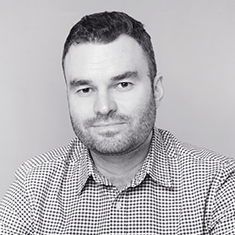Auriculoplasty
Look for appointment timesAuriculoplasty or otoplasty is a surgical procedure aimed at correcting and improving the shape, size or position of the auricle. This surgery is often performed for aesthetic reasons but may also be necessary for medical indications, such as congenital defects or deformities caused by trauma.
Rotational otoplasty is a specific method used to correct the shape, size or position of the auricle by rotating it. This technique is often used when ear deformities are more complex and need a more advanced approach.
Indications for otoplasty:
- Protruding ears
- Congenital auricle defects
- Deformities caused by trauma
- Disproportionate auricle size
- Auricle asymmetry
- Difficulty wearing glasses or hearing aids
Description of the procedure
- During the first consultation, the surgeon will discuss the patient’s expectations and needs, conduct a physical examination and draw up a surgical plan.
- The procedure is usually performed under local anaesthesia, though general anaesthesia may also be used, if necessary.
- An incision is made behind the auricle, or in some cases in front of it, depending on the specific correction needed. The structure of the cartilage is reshaped to fit the desired shape. Excess skin and cartilage are removed, if necessary. In rotational otoplasty, the cartilage is also rotated to the desired position in addition to the reshaping to achieve a natural and symmetrical result. After rotation, the cartilage is secured in the desired position with internal stitches. The skin incision is closed with fine stitches to minimise scarring.
- After the surgery, a bandage or special headband is placed on the ear to aid the healing process and protect the ear. The patient can usually go home on the same day, but it is recommended that they sleep on their back and avoid physical exertion to protect the ear.
Recovery period
- Bandages are usually removed in one to two weeks.
- Swelling and bruising may persist for a few weeks.
- Most patients will be able to return to their usual activities in one to two weeks, but sports and strenuous physical exertion should be avoided as advised by the doctor (e.g. avoiding contact sports for two months).
Risks and complications
- Infection
- Bleeding
- Scarring
- Ear asymmetry
- Changes in auricle sensitivity
- Insufficient or excessive ear rotation
Otoplasty is an effective method of improving the appearance and function of the ears, especially in the case of more complex deformities. The results are permanent and often significantly improve the patient’s confidence and physical appearance. The final result is usually visible within six months of the procedure, when the swelling has subsided fully and the shape of the ear has stabilised.
Please note! A pre-operative consultation with a doctor is required.
Please note! Pre-operative analyses and follow-up consultations are not included in the price and are subject to additional costs.
Service providers
Locations
Price
Ear-nose-throat doctor consultation
Otoplasty (one ear) (under general anaesthesia)
Ear-nose-throat doctor consultation
Otoplasty (one ear) (under local anesthesia)
Otoplasty with rotation (one ear) (under local anesthesia)
Otoplasty (one ear) (under general anaesthesia)
We have several payment options. Read more HERE.
BOOKING
Auriculoplasty






